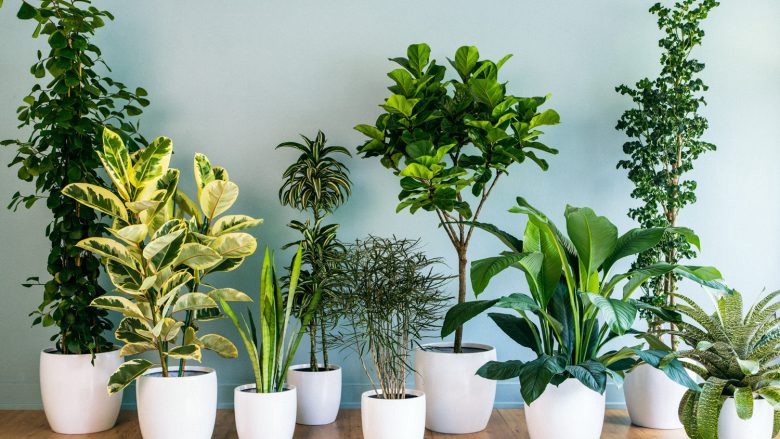List Of Indoor Plants To Keep And Not To Keep At Home

Order indoor plants according to Vastu. Indoor plants are known to purify the air and to add aesthetic value to the house. However, the right Vastu plants for the house must be chosen to get the most astounding benefits and cheerful feelings. If the plants are put in the wrong direction, they can bring bad luck to the people who live in the house.
Vastu is an ancient and traditional Indian architectural style. The principles of Vastu-science revolve around numerous sources of energy, both solar and cosmic. The key to delivering prosperity and peace to you and your loved ones is to balance this energy. According to Vastu Shastra, all objects in the universe have a level of energy, and every building or piece of land has an energy vibration linked with it. Positive and negative energy make up the universe. Vastu strives to eliminate negative energy while increasing positive energy. It is essential to buy indoor plants, according to Vastu.
List of plants that you should keep at home according to Vastu.
Snake Plant
According to Vastu, Snake Plant Benefits are numerous because it works as a beacon of positive energy. This indoor plant can eliminate four important pollutants from the air that cause sick building syndrome. This indoor plant improves healthy oxygen flow in the room, decreases stress, and produces a pleasant environment in your bedroom. Plantain Snake Vastu Direction is critical for reaping all of these benefits. Snake Plants, according to Vastu, should be placed in the eastern, southern, and south-eastern corners of your home. The plant must not be placed over any table or surface, and any other indoor plants must not surround it.
Calathea Zebrina Plant
The zebra plant, also known as calathea zebrina, takes its name from its distinctive, perennial foliage, which features quite big ovate, elliptic leaves at the tips of its long stalks, resembling zebra stripes. When it comes to the colour of the leaves, these plants have a diverse and bright palette that includes yellow, pink, pale, and even olive. Though the species can reach a width of 3 feet in containers, the leaves that emerge from the basal rosettes can grow 2 feet long by 1 foot broad.
Jade Plant
The jade plant, with its little rounded leaf, is thought to bring good fortune. Jade represents growth and renewal, and the shape of the leaves is similar to that of jade stones. According to Vastu Shastra, the Jade plant represents good luck and pleasant energy and can thus be placed in the home or business. Buy Jade plants online; you can also keep the jade plant out of the bathroom.
Money Plant
In Vastu Shastra, the moon plant is said to bring wealth and prosperity to homeowners. It should be positioned to the north or east of the home. Placing money plants on balconies is thought to be particularly auspicious.
Lucky Bamboo
A bamboo plant is a plant lover’s favourite since it is considered lucky by the Vastu Shastra. It is said to bring the house health, money, and prosperity. The plant’s vertical shape affects its life energy, vigour, and physical energy. For optimal results, place this plant in the east and southeast corners of the house.
Tulsi
Tulsi, often known as Holy Basil, has both sacred and therapeutic importance in Hindu culture. This plant is grown to enhance well-being and retain positive energy. Tulsi thrives in the northeast, according to Vastu Shastra.
List of plants that you should not keep at home according to Vastu.
Cactus
Cactus plants should not be grown in the home. According to Vastu experts, cactus can carry negative energy into the dwelling. With its biting thorns, the plant brings misfortune into the home and causes stress and anxiety.
Bonsai
While bonsai plants are visually appealing, they are not particularly auspicious to have at home. According to Vastu experts, it is advised to avoid putting this plant anyplace in the house. It represents delayed or stunted growth and may interfere with the residents’ lifecycle. They require more open space, such as a garden.
Palm
Having palm trees in your home can quickly transport you to the tropics. Unfortunately, all of your positive thoughts will be dashed the moment you discover your plant has an unwelcome supply of spider mites. The costly plant is infamous for attracting pests, which may be difficult to eradicate as they slowly nibble away at the leaves.
Cotton Plant
Cotton plants, especially silky cotton plants, are not recommended for indoor use. According to Vastu, these dazzling white plants seem lovely when utilized as a decorative element, but they are not the best choice. When these plants are kept indoors, they are considered inauspicious and bring bad luck.
Peepal Tree
We’ve seen peepal trees at temples, and people believe that growing one at home will help us spread optimism. However, according to Vastu, a peepal tree should never be planted in the house. If you have a peepal tree in your home, move it to a sacred spot or plant it in a temple. This is thought to have the potential to damage your money.




